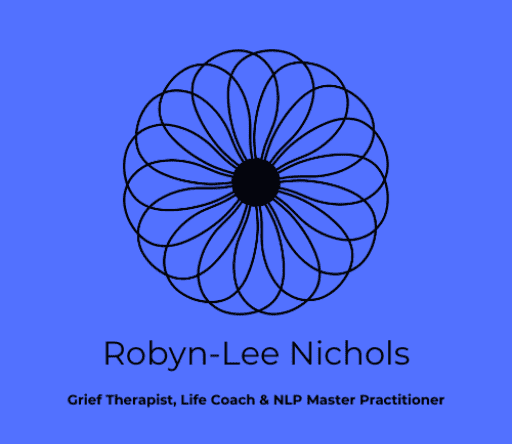Navigating the Shadows: Five Strategies for Understanding and Overcoming Depression in Grief
Depression in Grief is important to understand and to draw clear lines of this phase of your grief recovery journey.
If you have read the last three articles on the stages of grief, you will know that grief is a profound and complex emotional experience that can manifest in various ways. Among these stages, depression stands out as a particularly debilitating phase that many grievers encounter.
Please note that this depression is strictly relatable to the loss, or losses that you have experienced. While it is no less important to understand than clinical depression, knowing that there is a difference is fundamental to the support that you will seek.
As a trained grief coach and therapist, I aim to shed light on this important stage, helping those who are suffering from overwhelming grief to understand and manage their feelings.
The Nature of Grief and the Role of Depression in Grief
Depression in grief is not merely sadness; it is an intense emotional state characterized by feelings of hopelessness, despair, and disconnection from life. According to Elisabeth Kübler-Ross’s model, depression is the fourth stage of dying, following denial, anger, and bargaining. This stage often arises as the reality of loss settles in, leading to a profound sense of emptiness and sorrow.
As previously mentioned the stages of grief, commonly known as denial; anger; bargaining; depression and acceptance have been adapted from the Kübler-Ross model, which were originally devised for people who were ill. When you consider your own grief journey to this point, and I believe that we are all grief experts, you can reflect on these stages at one point or another.
During this time of depression, individuals may feel as if they are trapped in a dark cloud that obscures any sense of joy or purpose. Common symptoms include fatigue, changes in appetite or sleep patterns, withdrawal from social interactions, and an overwhelming sense of guilt or regret about the loss. It is crucial to recognize that these feelings are a natural response to loss and do not signify weakness or failure.
Understanding Your Feelings
When grappling with debilitating depression in grief, it’s essential to acknowledge your emotions without judgment. Many people experience conflicting feelings—sadness intertwined with anger or guilt. This complexity can be confusing and isolating. Remember that it is normal to feel lost during this time; you are not alone in your experience.
Key Emotions Associated with Depression in Grief:
- Sadness: A deep sense of sorrow for what has been lost.
- Guilt: Often stemming from perceived shortcomings in the relationship or unresolved issues.
- Anger: This may be directed at oneself, others, or even the deceased. Remember too, that this is accepted a stage of grief, so when you consider that anger might be an emotion that follows you on your grief recovery journey, it is easier to accept that grief is not a linear experience with an end-date.
- Anxiety: Worries about the future without the loved one can exacerbate feelings of despair.
Coping Strategies for Managing Depression in Grief
While depression in grief can feel overwhelming, there are several strategies that can help you navigate this challenging stage:
- Seek Professional Support: Engaging with a grief counselor or therapist can provide a safe space to process your feelings. They can guide you through your emotions and help you develop coping mechanisms tailored to your needs.
- Connect with Others: Isolation can deepen feelings of depression. Reach out to friends, family, or support groups where you can share your experiences and feelings. Connecting with others who have faced similar losses can be particularly comforting.
- Establish Routines: Creating a daily routine can provide structure during chaotic emotional times. Simple tasks like getting out of bed at a certain time or preparing meals can instill a sense of normalcy.
- Practice Self-Care: Prioritize your physical health by maintaining a balanced diet, exercising regularly, and ensuring adequate sleep. Mindfulness practices such as meditation or yoga can also help ground you amidst emotional turmoil.
- Express Your Emotions: Writing in a journal or engaging in creative outlets like art or music can serve as powerful tools for expressing your grief. Allow yourself to feel whatever comes up without censorship.
Moving Towards Acceptance
Depression in Grief is a natural response to the loss you are feeling and experiencing. For me, it was an everlasting grey cloud covering my face, with a weight of an elephant sitting on my shoulders. It was difficult to see forward, and impossible to understand that there were solutions at hand.
This is the key of awareness. Knowing that we are not alone in this phase of our lives, and on this journey is fundamental to being able to move on and rebuild our lives around our grief. I often mention “grief recovery journey” and like life, like a Camino, its an everlasting journey.
As you work through your grief, consider reflecting on the positive memories shared with your loved one. Finding ways to honour their memory—through rituals, storytelling, or acts of kindness—can facilitate healing and connection.
Conclusion
Experiencing depression is grief is a natural response to profound loss. Understanding this stage allows you to approach your emotions with compassion rather than judgment. By seeking support and employing coping strategies, you can navigate this difficult period more effectively. Self-care is so important, especially during this stage.
Remember that healing takes time; it is not about forgetting your loved one but learning how to carry their memory forward while also reclaiming joy in life. If you find yourself feeling stuck or overwhelmed by these emotions for an extended period, do not hesitate to reach out for professional help. You deserve support on this journey toward healing and acceptance.







